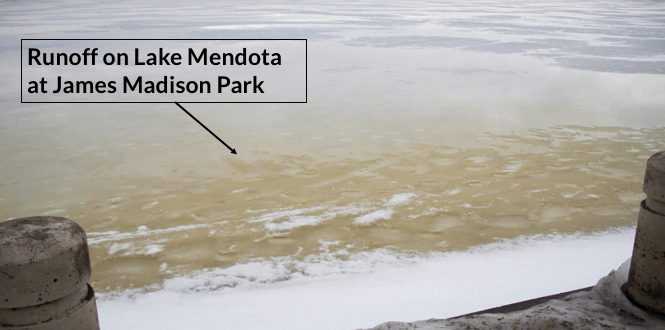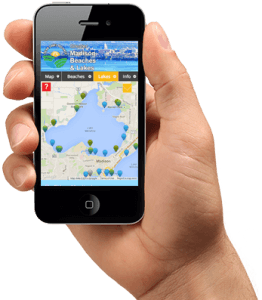Urban and rural runoff add algae-creating phosphorus to our lakes
MADISON, Wis. — Warm February temperatures and a high volume of rain are melting snow now, but creating a hazardous problem down the road. Visible runoff can be seen along the shores of all five lakes in our watershed. This brown, discolored water has gathered soil and debris from the frozen land and washed it into our lakes. With more weekend rain in the forecast, this problem will continue to harm Madison’s lakes.
“When we have a deluge of rain in the winter, or a fast thaw, the frozen land can’t accept the water,” said Paul Dearlove, Clean Lakes Alliance senior director of watershed initiatives. “This means more phosphorus has been loaded into the lake, which has the potential to cause more algae blooms this summer.”
The Problem
Last year blue-green algae blooms closed beaches in mid-June and early July along the southern end of Lake Mendota. Three main contributing factors were phosphorus runoff, heat, and low wind. Blue-green algae blooms affect water clarity and are a health hazard to both pets and people. “Runoff from these storms comes from rural farms and fields, as well as urban parks, streets, and yards,” says Dearlove.
Scientists from the University of Wisconsin Center for Limnology found that between 1990-2006, phosphorus loading in our lakes between January and March made up 48% of the total phosphorus measured. In 2014, the Center for Limnology found the highest loading to Lake Mendota occurred during high rainfall and snowmelt events, when phosphorus in soil or manure applied to frozen soil runs off into the lake.
The Solution
Our climate has changed drastically over the past 30 years, which has brought more intense rain events in the spring and summer, as well as the late winter. While we can’t quickly reverse climate change, we CAN solve runoff issues. The best way to combat the runoff brought on by these rain events is to increase permeable surfaces and to slow the water before it reaches the lakes. In the summer, rain gardens, rain barrels, and grass help this issue in urban areas; while better land management on farms helps control runoff in rural areas.
In the winter however, frozen ground and empty rain gardens don’t filter runoff. “If we can’t prevent runoff from reaching the lake in the winter, it means our work of preventing runoff in the summer is twice as important,” says Dearlove.
###
Clean Lakes Alliance is a not-for-profit organization dedicated to the improvement and protection of the lakes, streams and wetlands in the Yahara watershed. Become a Friend of Clean Lakes today to support Clean Lakes Alliance’s work to protect water quality in our lakes.


